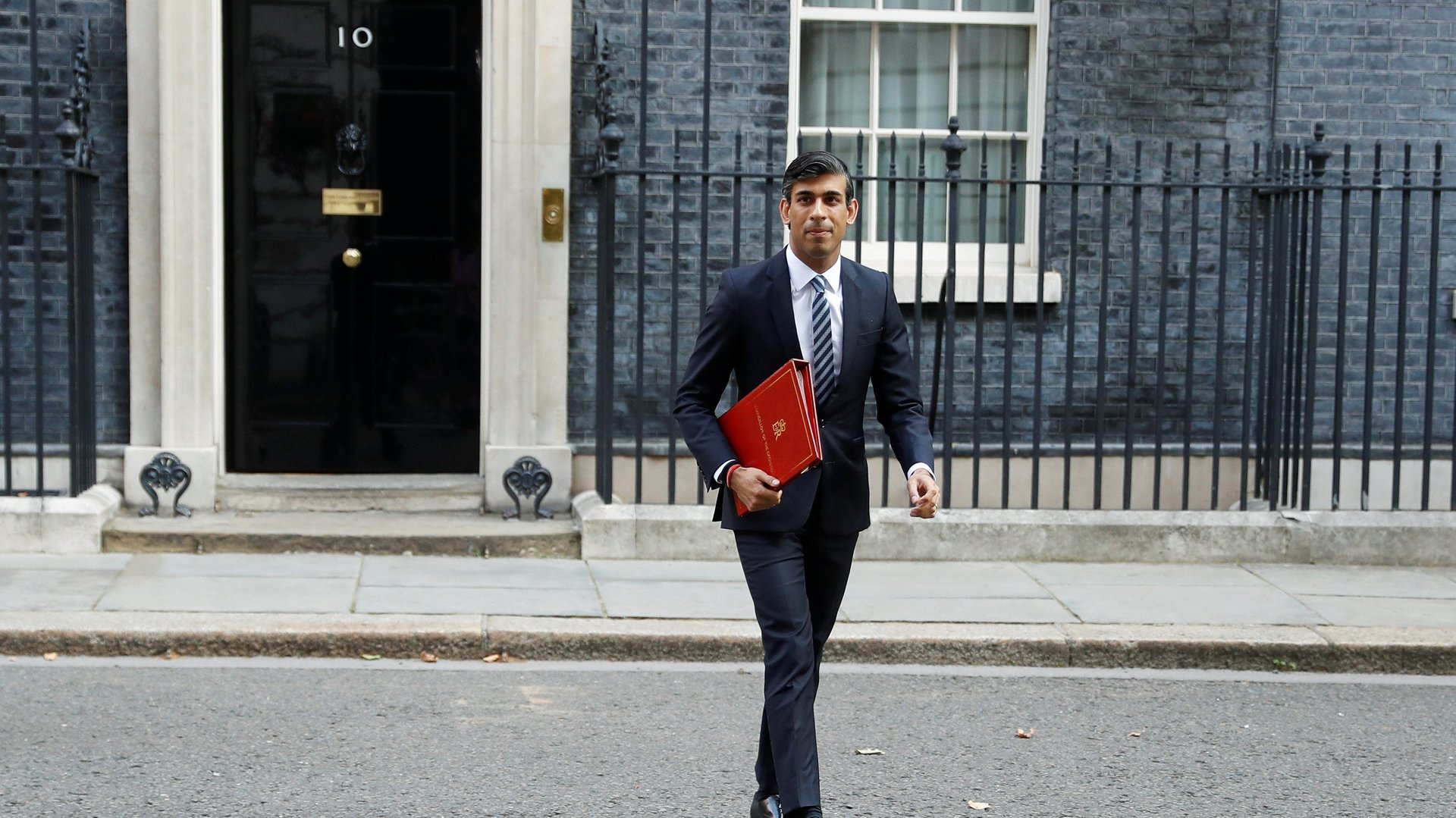The UK’s job support scheme shows the US is becoming more of an outlier
Britain is leaning into the type of worker policies that are widely used in the rest of Europe, and standing even further apart from the US when it comes to protecting society from a wave of unemployment.


Britain is leaning into the type of worker policies that are widely used in the rest of Europe, and standing even further apart from the US when it comes to protecting society from a wave of unemployment.
The UK will have a new support scheme in November when its furlough program ends. Employees who work at least 33% of their hours will be eligible for it, and they will get at least 77% of their pay, with the government and the employer sharing the subsidy for hours not worked. UK chancellor of the exchequer Rishi Sunak acknowledged today (Sept. 24) that Britain’s existing furlough program had propped up roles that no longer functionally exist. That system paid as much as 80% of workers’ wages, and it originally required employers to keep their workers at home without the flexibility of short-time work.
When the furlough scheme was put in place, the UK hoped the pandemic would be a short-term disruption. But the government had to backtrack this week, encouraging home-working as Covid-19 infections surge. Starting today, pubs and restaurants are required to close by 10pm each day. While looser than the lockdown imposed earlier this year, the new restrictions will still damage the recovery, particularly for sectors like restaurants and transportation, and will last for six months, alongside the new support measures for workers.
Meanwhile, Sunak canceled plans for an autumn budget, scrapping its projections to focus on the ongoing crisis, and underscoring the sheer of expense of business and worker protections. At its peak in May, 30% of the UK workforce was furloughed. The extra cost of coronavirus support programs has pushed the UK public debt to more than £2 trillion ($2.7 trillion) for the first time, as the country’s ratio of debt to GDP rose to the highest level since the early 1960s.
Some think Sunak’s plan is still too stingy, as it’s less generous than other European programs. The government will provide 20% of the worker’s pay, down from 80% at the onset of the crisis. “This won’t stave off a rise in unemployment,” Sanjay Raja, an economist at Deutsche Bank, wrote in a research note. “Unless further support comes quickly, the unemployment rate will likely continue to tick up over the coming months.”
Do short-time work subsidies help?
You can lump unemployment policies into two broad categories—the US-style efforts that provide payments to people who have lost their jobs, and policies popular in Europe that provide money to companies to keep workers on the payroll. Germany’s Kurzarbeit, which translates to “short-time work,” is the best know of these programs, although they have proliferated around the world. Companies can use it to cut worker hours, and the government will pay most of their lost wages.
The US flirted with this type of policy with its payroll protection program, which offered loan forgiveness for companies that continues paying workers. But the majority of US support for workers has come from (now expired) enhanced unemployment benefits that provided an extra $600 a week to qualifying jobless people.
Subsidies that keep workers on the payrolls could be a good thing if the pandemic disruption is temporary. If the world goes back to something resembling business as usual soon, it will save employers time rehiring. It could help support consumer spending if it gives workers confidence that they will continue to have jobs.
If the world doesn’t go back to the way it was before, or doesn’t do so quickly enough, politicians might be better off allowing their labor market to go through a painful reorganization rather than shielding it.
Short-time work programs could have other benefits that are harder to quantify. Some behavioral economists think short-time work is better for workers’ mental health than the stress of being completely unemployed. In Germany, it’s thought that Kurzarbeit’s worker support could help groups feel they aren’t being left behind during the coronavirus disruption.
This story has been updated in the 5th paragraph to include comment from an economist.